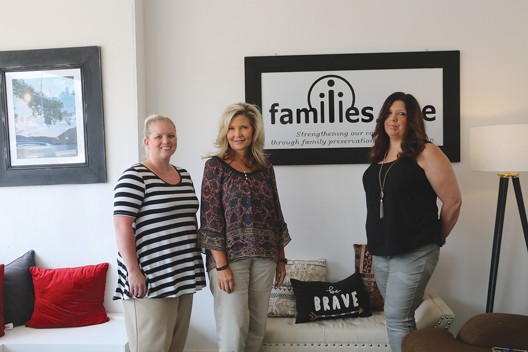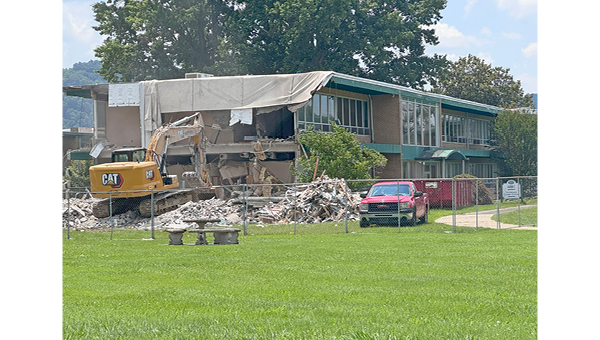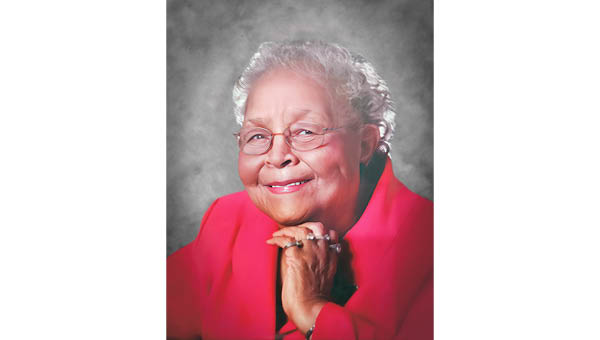First Judicial District Felony Recovery Court ‘Because sometimes people need a second chance’
Published 8:21 am Wednesday, June 5, 2019

- Star Photo/ Kevin Green Pictured (left to right) Families Free recovery coordinator, Rachel Roden, executive director, Lisa Tipton and clinical director, Robin Ledford.
Families Free, who oversees the First Judicial District Felony Recovery Court, is having an open house available to the public Monday from 4:30 to 6:30 p.m., where the theme will be Second Chances and how the state sponsored program can help reduce recidivism by reducing crime.
According to Rachel Roden, recovery coordinator for Families Free, and released documents, the Recovery Court is a collaboration of Carter County’s criminal justice system and features a “five-level intervention program for adults who have been charged with one or more non-violent felonies and who are having trouble staying clean and sober.”
The program is designed for those who are on probation for mostly drug offenses and are at high risk of violation, which would return them back to jail or prison. Roden says the process of getting a participant into the program will start when she gets a referral from the court that someone should be placed in the program. She will complete the initial assessment and it is brought before the Recovery Court Team, which will make a recommendation to the judge, who will make the determination of whether they can participate in the program.
Trending
Criminal court judges Lisa Rice and Stacy Street along with the assistant public defender, assistant district attorney, recovery court coordinator, TDOC probation officer, ACCP probation officer, sheriff liaison, bar liaison, mental health liaison and Families Free treatment officials Lisa Tipton, executive director, and Robin Ledford, clinical director, comprise the Recovery Court Team.
Families Free initially received the go ahead to start operating the Recovery Court in 2016, but because of logistics and establishing a center first, they were not able to receive their first participant until February 2017.
The program is a more in-depth stepped program that seeks to get at the root of what is causing the person to offend or re-offend.
“We mostly take people who are on violation status, who have come back through violation of probation, and it is high risk, high need,” said Roden. Regular probation is not working, so the Recovery Court steps in and seeks to help that population.
One of the main issues addressed by phases in the program is employment. Some companies have blanket policies that prevent them from hiring someone with a felony. However, there are some employment opportunities out there willing to work with someone who is no longer associated with reoffending and not being around people with a stigma of drug involvement.
Lisa Tipton said she wants to address that stigma. “We want to see each individual as a whole person and that person can move into complete wellness…and if we are doing that well and we are seeing them in the context as who they are as a person…and we are bringing all those supports into their life…so that we can cut their ties to those with stigmas attached.” She ultimately said, as each person goes through the program, and becomes well that reduces the demand for drugs and thus reduces the supply.
Trending
Ledford also addressed the stigma of being a felon from a different but coinciding level. It is easy to tell someone to get a job, but just the practical situations, such as identification and a “pair of black pants and shoes” needed to get many fast food jobs are not always so easy to get, especially with someone who has been incarcerated for a very long time, or have never had those materials to begin with. She said it is easier to get the person on board if we let them become the “best people” they want to be.





